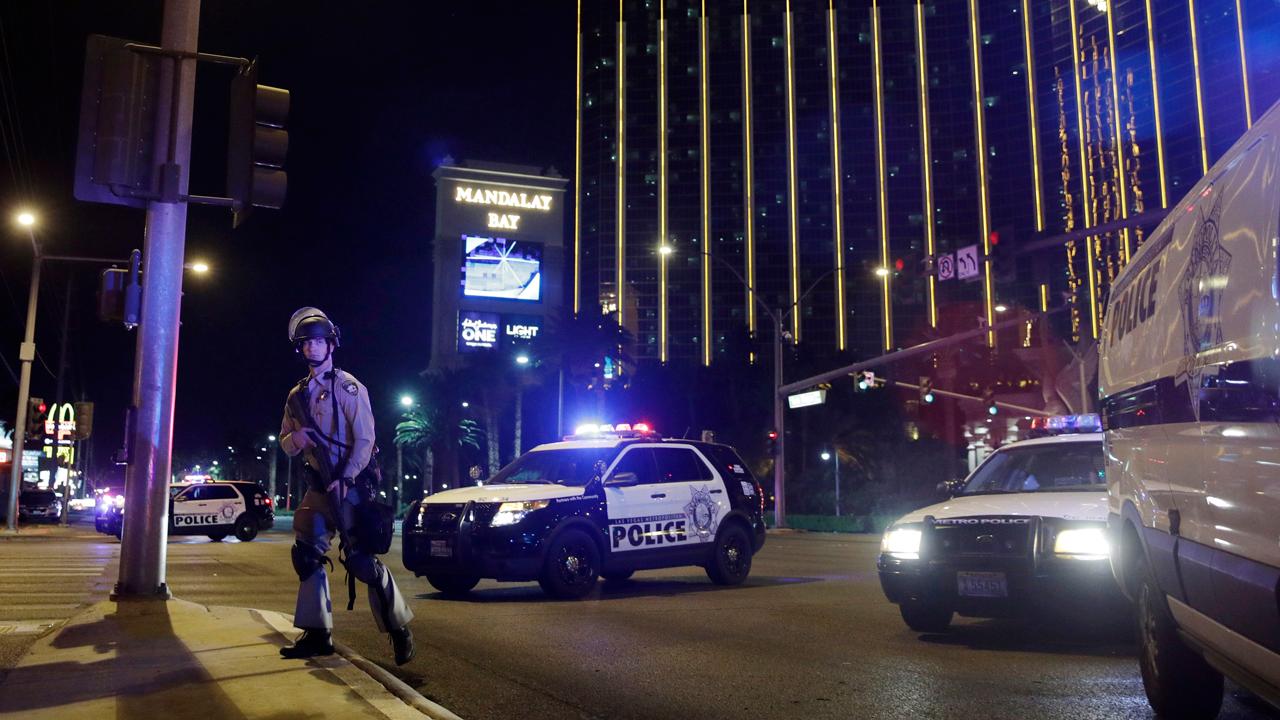Las Vegas massacre forces hotels to re-evaluate security measures
Late Sunday evening, in the midst of the glitz and glamour of the Las Vegas strip, 64-year-old Stephen Paddock barricaded himself into a room on the 32nd floor of the Mandalay Bay Resort and Casino and opened fire on a crowd of 22,000 unsuspecting concertgoers.
It was the worst shooting in modern U.S. history, leaving at least 58 people dead and more than 500 injured, not including Paddock, who killed himself.
Now, Paddock’s ability to inconspicuously transport 23 guns -- including at least 12 semi-automatics -- to his room without alerting suspicion is raising questions, and concerns, about how hotels can prevent similar bloodshed in the future. Experts, however, agree that there is no panacea to preventing violence.
“Smart technologies, coupled with advancing practices and policies, can make a difference,†Patriot One Technologies CEO Martin Cronin told FOX Business’ Ashley Webster Thursday. “But people go there for a good time. They go to move freely. They don’t want to fundamentally change the way of life.â€
Already, some hotels across the country are implementing measures to beef up their security in wake of the shooting.
The Encore and Wynn Hotel and Casinos, both located on the Strip, began checking bags with handheld metal detectors. And the Nevada Gaming Control Board said that it will put undercover security guards inside casinos across the country. MGM Resorts International, which owns the Mandalay Bay Hotel, has declined to comment on its security operations.
Cronin said his company is working with partners in Las Vegas to install technology that can discretely detect the presence of weapons when a person walks by it.
ACME Security Inc. president Weston Conwell said on “Countdown to the Closing Bell†that he suspects there will be big changes underway in how hotels manage security.
“But the problem is, people want a stop gap,†he said. “They want things to happen right away.â€




















